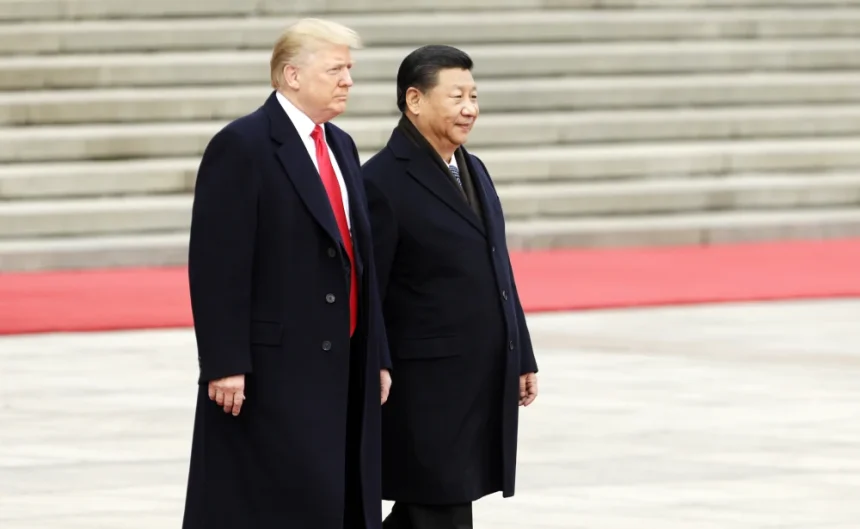United States President-elect Donald Trump has expressed optimism about improving relations with China following a phone conversation with Chinese President Xi Jinping. The call, described by Trump as “good,” took place on Friday, just days before he is set to return to the White House.
In a social media post, Trump detailed the topics covered during the discussion, including trade imbalances, the opioid crisis linked to fentanyl, and the future of the video platform TikTok. He expressed confidence in the two leaders’ ability to address these challenges, stating, “President Xi and I will do everything possible to make the world more peaceful and safe.”
Trade and Tensions
Despite Trump’s positive remarks, his proposed trade policies have sparked concerns. During his campaign, Trump pledged to impose tariffs of up to 60% on Chinese imports, a move that analysts warn could escalate tensions, harm China’s economy, and lead to higher prices for U.S. consumers.
The U.S. has long faced a significant trade deficit with China. Last year, Chinese exports to the U.S. reached $401 billion, while American exports to China totaled $130 billion. Trump, during his first term, frequently criticized Beijing’s trade practices as unfair and centered competition with China as a cornerstone of his foreign policy.
Tensions have also been fueled by disagreements over Taiwan, South China Sea claims, and the U.S. push to limit Chinese influence in the Asia-Pacific region. In addition, the U.S. has accused China of cyberattacks and deploying a spy balloon over American territory, allegations that Beijing has denied.
TikTok and Fentanyl
One of the critical issues discussed during the call was TikTok, the Chinese-owned video-sharing platform facing a potential federal ban in the U.S. Congress passed legislation last year citing concerns about data privacy and content manipulation. However, Trump aides have suggested that the president-elect is exploring options to save the platform while addressing security concerns.
Another focus was the ongoing fentanyl crisis. The synthetic opioid, often traced back to Chinese suppliers, has been a significant contributor to the U.S. opioid epidemic. Both leaders discussed the importance of addressing this issue collaboratively.
Strategic Competition
The Biden administration, in its most recent National Security Strategy, labeled China as the “most consequential geopolitical challenge” for the U.S., emphasizing a strategic competition to shape the global order. Trump appears set to continue this focus, appointing outspoken China critic Senator Marco Rubio as his Secretary of State.
During a Senate confirmation hearing, Rubio called China the “biggest threat” to U.S. prosperity, warning that Beijing’s influence could undermine American security and economic independence.
A Call for Cooperation
Chinese officials have consistently emphasized a preference for dialogue and mutual respect in managing bilateral relations. “We handle China-U.S. relations in line with the principles of mutual respect, peaceful coexistence, and win-win cooperation,” said Foreign Ministry spokesperson Guo Jiakun during a recent briefing.
While significant challenges remain, Trump’s conversation with Xi suggests a willingness on both sides to seek common ground. Whether this dialogue will translate into tangible improvements in U.S.-China relations remains to be seen.




